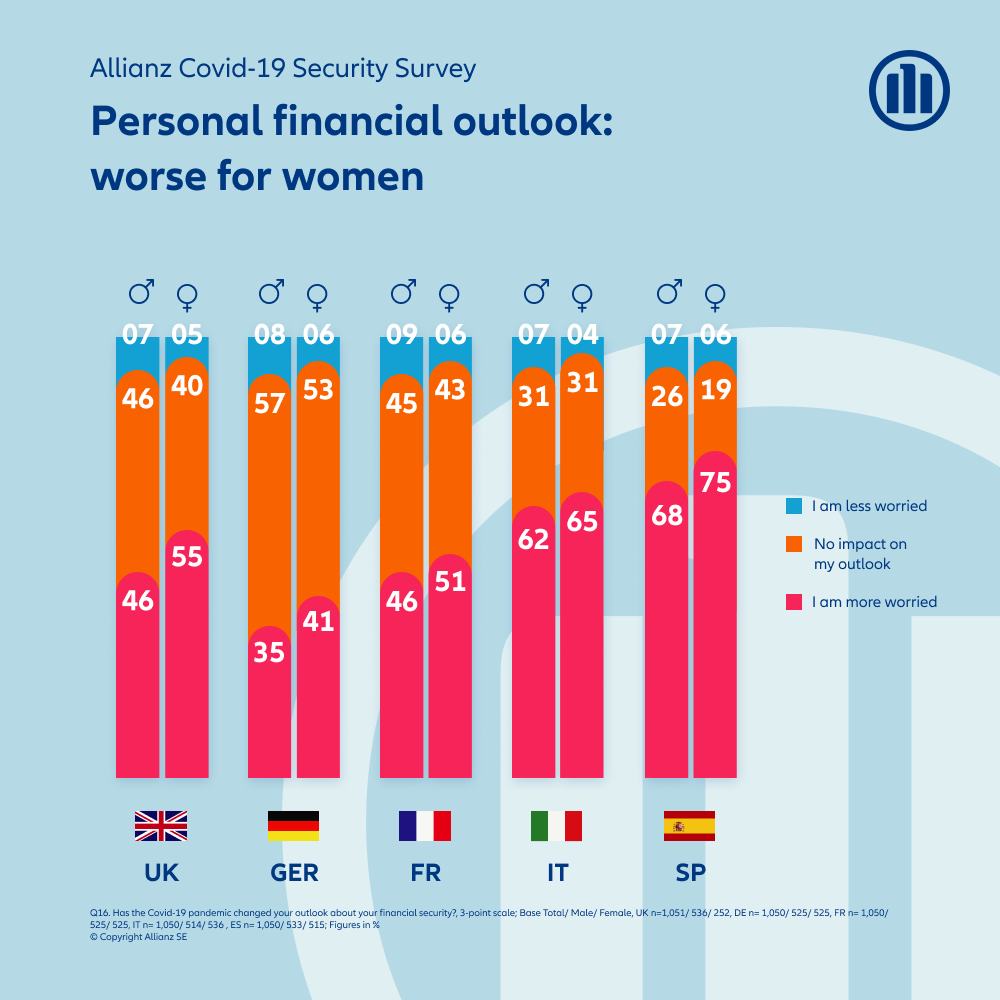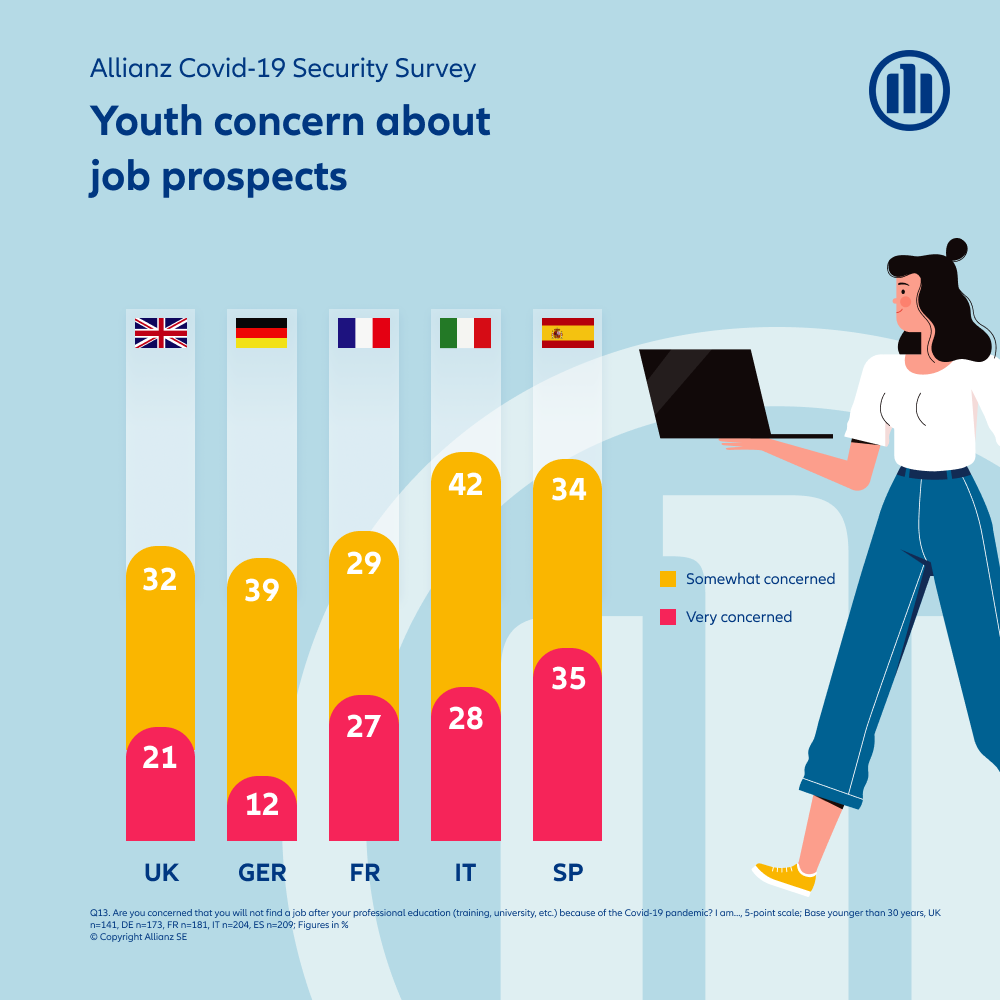Among all respondents, around two thirds experienced a high or very high impact on their daily lives due to the pandemic. The effect is highest in Spain (88%), where the pandemic hit early and hard, and lowest in Germany (52%).
Over half of all respondents say the pandemic has also negatively affected their sense of security in daily life. The numbers rise to 79% in both Spain and Italy, where a vast majority of respondents additionally felt the pandemic had made political and societal structures less or much less stable (82% in Spain, 80% in Italy). Optimism has taken a hit, with roughly 45% of all respondents believing they will continue to feel insecure by the end of 2021; the number grows to 54% in Italy.
The survey reveals that women and younger respondents experience greater unease about their financial security. Across all countries, women were between 3 and 9 percentage points more concerned than men about their financial situations, as a result of the pandemic. Generation Y, or Millennials, were similarly affected, reporting as the most worried age group across all countries.
Women additionally report a more damaged sense of trust in political and societal systems, and greater health concerns on the whole than men. In Germany and the UK, it appears they have also shouldered more of the childcare burden. This seems particularly true in Germany, where over half of women (54%) reportedly found childcare more difficult than pre-pandemic and 20% of women said it had become much harder, compared with 12% of men.





